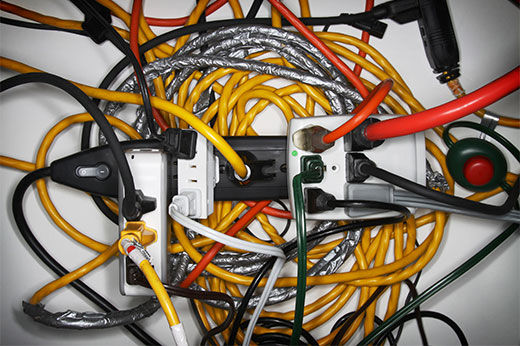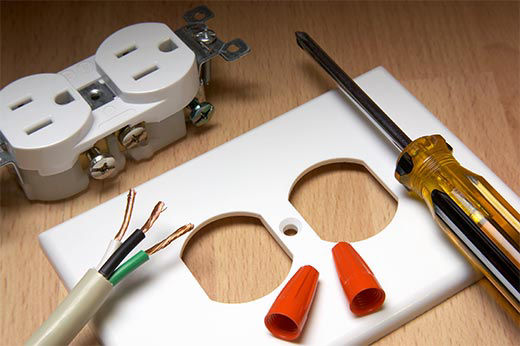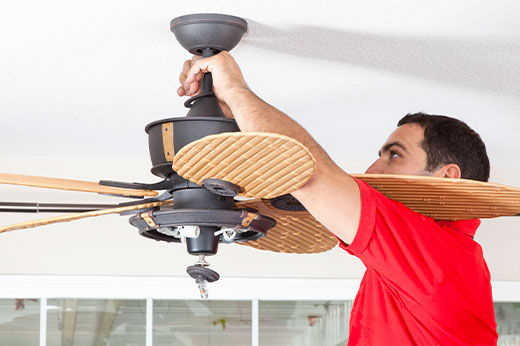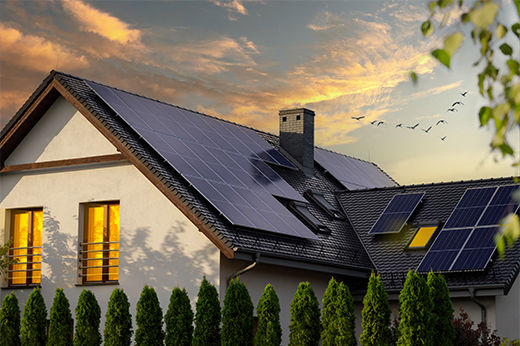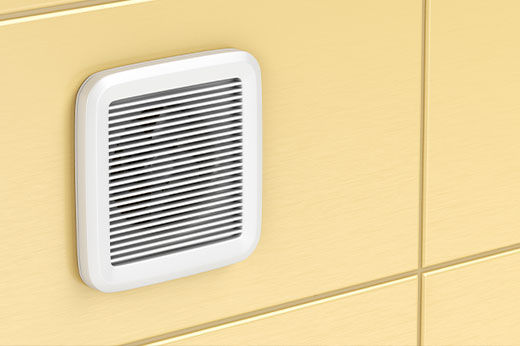While do-it-yourself projects can be fun and fulfilling, there is always a potential for personal injury or property damage. We strongly suggest that any project beyond your abilities be left to licensed professionals such as electricians, plumbers, and carpenters. Any action you take upon the information on this website is strictly at your own risk, and we assume no responsibility or liability for the contents of this article.
Everyday Electrical Safety Tips
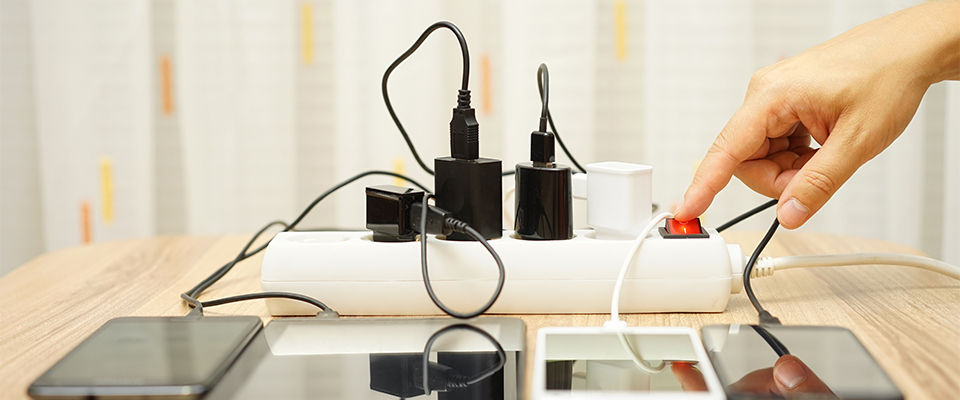
Every year, thousands of people are injured or killed in preventable accidents involving electricity. What is most unfortunate about this statistic is that many, if not most, of these accidents, could have been prevented with little training in everyday electrical safety. As with most problems, it is best to determine potential electrical problems or dangers before they arise. Whether you are a homeowner or renter, knowing the ins and outs of basic electrical safety could save lives and prevent injury or other problems from occurring in the future. Especially if you have children or pets around the house, making sure your home is electric-safe is vital. Read on for our top tips and checklist for everyday electrical safety.
Childproof Your Outlets
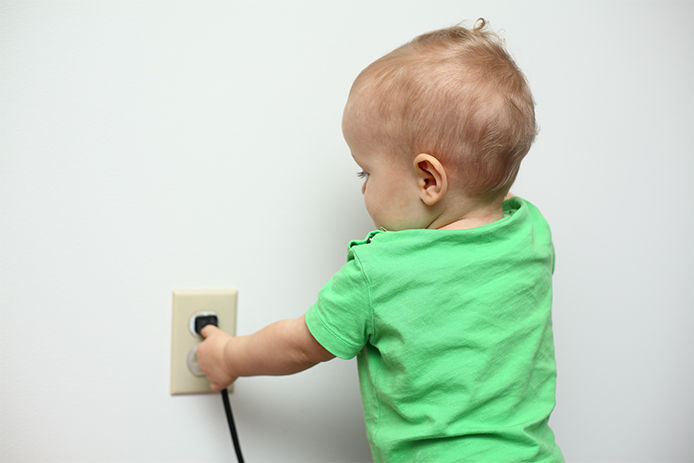
If you have kids or nosy pets around the house, it’s best to invest in childproofing your outlets. Kids, particularly younger children, love to go exploring around the house. Young children especially like to yank on electrical cords and stick things (including their fingers) into outlets. Similarly, some pets can be mischievous and like to chew on wires and play near outlets. Prevent any future trouble from happening with your wires and outlets by child- and pet-proofing them preemptively. Installing safety caps and covers over outlets can go a long way toward protecting kids from electric shock.
In addition, it’s important to avoid tangles of cords or excess cord length from hanging around. Wrap excess cord and tie it with electrical cord ties to prevent it from unraveling. You may also want to use electric cord tape to tape loose cords to walls, floors, or under furniture so that no one can pick them up and tug on them. Finally, take the time to explain to children that cords and outlets are not to be played with so they can learn.
Avoid Fire Hazards
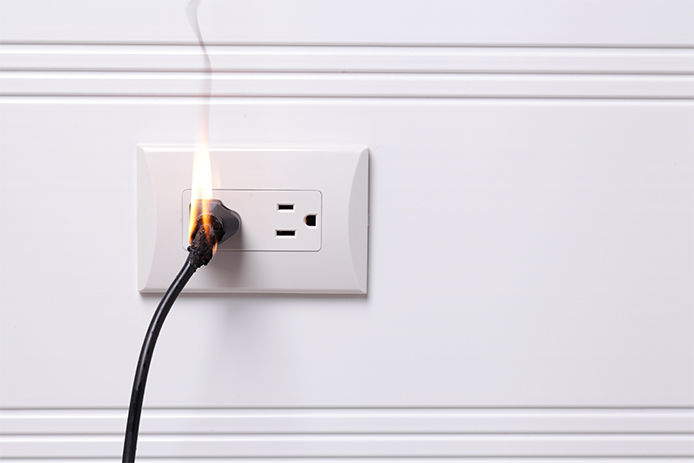
Damaged or improperly used electric products don’t only pose a risk of electric shock; they’re also a fire hazard. Overloaded outlets, crowded wires, space heaters, and overheated appliances are all at risk for sparking a fire in your house. To ensure that your outlets, wires, and appliances don’t cause fire to start, ensure they are not overcrowded or overloaded so that they don’t overheat. This can be done by using power strips instead of overcrowding outlets. Be sure appliances are up to date and are kept far enough away from furniture and combustible items, so they don’t overheat and spark a flame. Make it a habit to unplug appliances, heaters, and loaded outlets when you’re not using them to save energy and prevent accidents.
Most electrical fires are caused by faulty electrical outlets and old appliances. Other fires can be started by faults in cords, receptacles, and switches. Never use worn, frayed, bare, or damaged cords, as they can overheat and send the heat to other combustible surfaces, like floors, curtains, and rugs. Running extension cords under rugs and carpets can also overheat and cause a fire to start.
Light fixtures, lamps, and light bulbs are another common cause of electrical fires. Often this happens because of an incorrect wattage. Installing a bulb with a wattage too high for the lamp and light fixture can cause a fire to start. Always check that the lightbulb you’re using is appropriate for the light fixture or lamp and is far enough away from paper, cloth, or other combustible items that can catch fire when exposed to too much direct heat.
Use Appropriate Holiday Lighting
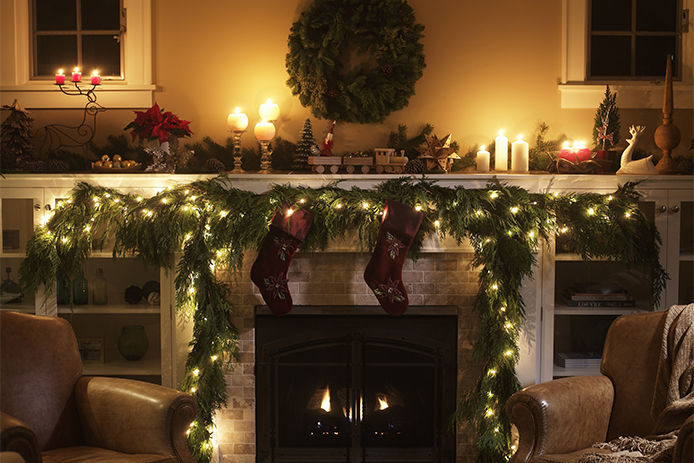
Holiday lighting is one of the highlights of the holiday season (no pun intended). But, holiday lighting is also responsible for house fires every year. Every year, fires begin with decorative lighting and Christmas tree lights. While innovation in holiday lighting has made these festive light features safer and a lower fire hazard, there are some preventative measures you can take to ensure the holidays are joyous and safe for you and your family.
Make sure you are using decorative lights that are safe and appropriate for what you are using them for. For example, interior lights should never be used outdoors. Ensure that lights placed outside are labeled for outdoor use. It’s also good to use lights that are safety tested. But even if they have gone through a safety test, you should also do your own safety test. Check all lights for broken or cracked sockets, frayed or bare wires, or loose connections. Discard any damaged sets, which can be a risk for fire and electric shock. Also, inspect extension cords for damage or bare wires. Consider getting your Christmas lights a programmable timer to ensure your string of lights is not accidentally left on. Otherwise, be sure to turn off holiday lights when not in use or when you are not home. When pinning up strings of lights, do not drive nails, staples, or tacks through wiring insulation, which can cause electric shock.
Keep Electronics Away from Water
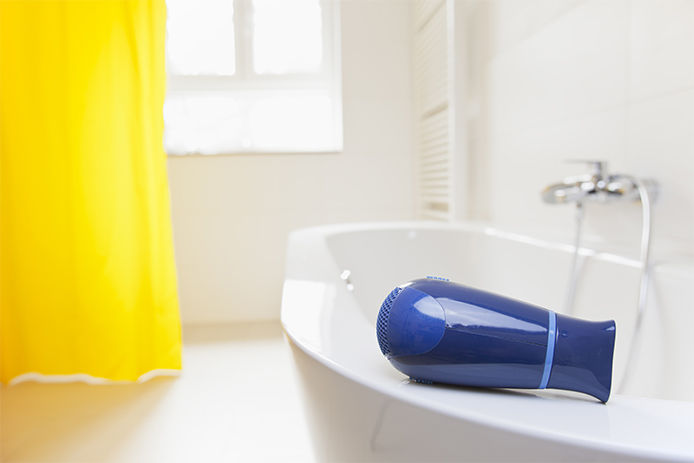
Water is a great conductor of electricity, which makes it a danger for loose wires and appliances. Keep wires, electronics, outlets, and appliances away from potential water sources, or make sure that they are insulated and protected from any exposure to water. Make sure that outlets that are in locations near water, such as bathrooms, kitchens, laundry rooms, and outside have Ground Fault Circuit Interrupters (GFCIs). These will quickly shut off power in the event of a ground fault, which can help prevent electric shock.
When in doubt, always leave it to the professionals. Consult an electrician whenever there are questions or problems with your electricity to ensure that your home is up to standards for everyday electrical safety.
